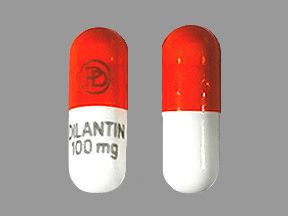 Dilantin (phenytoin) is an anti-epileptic drug that has been in use for decades. It’s marketed for young patients in a chewable form called Dilantin Infatabs.
Dilantin (phenytoin) is an anti-epileptic drug that has been in use for decades. It’s marketed for young patients in a chewable form called Dilantin Infatabs.
With any drug comes the risk of side effects. Dilantin is one of many drugs associated with the related skin conditions Stevens Johnson syndrome and toxic epidermal necrolysis.
Though these conditions are rare, when they do occur they put the patient at risk for permanent skin damage and blindness. In some cases, SJS/TEN can be fatal.
How Do You Get Stevens Johnson Syndrome?
Most frequently, Stevens Johnson syndrome happens as a reaction to a medication like Dilantin. Cases of SJS/TEN have been linked to many different kinds of medications. SJS/TEN can also result from infections or cancers.
Is Steven Johnson Syndrome Contagious?
Scientists believe SJS/TEN result from disorders of the immune system that are triggered by drugs or infections. There’s no contagion involved that can spread the condition from one person to another.
Symptoms
The characteristic Stevens Johnson syndrome symptoms start with a rash that spreads out across the body. Blisters form within these areas of rash, and the outer layer of skin peels away.
If Stevens Johnson syndrome progresses to affect more than 30 percent of the body surface area this way, it may then be referred to as toxic epidermal necrolysis.
Stevens Johnson syndrome symptoms can also attack the eyes. About 30 percent of children who develop SJS will suffer conjunctivitis.
More serious eye symptoms may result in scar tissue inside the eyelids, scratching of the cornea, and possibly permanent blindness. There have been some reports of cases of SJS/TEN and blindness in children.
How to Get Help
According to the Mayo Clinic, persons should seek emergency medical care if they experience unexplained widespread skin pain, facial swelling, blisters on the skin and mucous membranes, hives, tongue swelling, a red or purplish skin rash that spreads, or shedding of the skin.
Once the patient’s medical needs are tended to, consultation with an experienced drug lawsuit lawyer may be in order to review any legal remedies that may be available.
Other Drugs Associated
Dilantin is far from the only medication that can trigger SJS/TEN. Several different types of medications have been associated with these deadly conditions.
Another type of anticonvulsant drug known as Lamictal (lamotrigine) was implicated in this case of a young woman from California who required a series of skin grafts to treat her Stevens Johnson syndrome.
Certain types of antibiotics may be a leading cause of SJS/TEN. Zithromax (azithromycin), the macrolide antibiotic also sold under the brand names Z-Pak and Zmax, has a known association with SJS/TEN. The same goes for some fluoroquinolone antibiotics like Avelox (moxifloxacin) or Cipro (ciprofloxacin).
Cases of SJS/TEN and Blindness in Children
Drug lawsuits over SJS/TEN and blindness in children have yielded some impressively large settlements and jury awards.
One young plaintiff from Massachusetts, Samantha R., received a $140 million jury award after a case of toxic epidermal necrolysis destroyed 90 percent of her skin and left her blind.
While Samantha’s award may have been unusually large, it’s not unheard of for other cases of SJS/TEN and blindness in children to lead to judgments in the millions of dollars.
In 2010, a Philadelphia jury awarded $10 million to the family of another young girl who was struck with Stevens Johnson syndrome.
Even in well-based SJS/TEN drug lawsuits, pharmaceutical companies don’t give up their profits easily. A consultation with a knowledgeable drug lawsuit lawyer can help victims of these conditions and their families understand what their legal options are, enabling them to choose the course of action that’s best for them.
Do YOU have a legal claim? Fill out the form on this page now for a free, immediate, and confidential case evaluation. The SJS attorneys who work with Top Class Actions will contact you if you qualify to let you know if an individual lawsuit or Dilantin class action lawsuit is best for you. [In general, Dilantin lawsuits are filed individually by each plaintiff and are not class actions.] Hurry — statutes of limitations may apply.
ATTORNEY ADVERTISING
Top Class Actions is a Proud Member of the American Bar Association
LEGAL INFORMATION IS NOT LEGAL ADVICE
Top Class Actions Legal Statement
©2008 – 2025 Top Class Actions® LLC
Various Trademarks held by their respective owners
This website is not intended for viewing or usage by European Union citizens.
Get Help – It’s Free
Help for Victims of Stevens Johnson Syndrome
If you or a loved one were diagnosed with Stevens Johnson Syndrome (SJS) or toxic epidermal necrolysis (TEN) after taking a prescribed or over-the-counter medication, you may be eligible to take legal action against the drug’s manufacturer. Filing an SJS lawsuit or class action lawsuit may help you obtain compensation for medical bills, pain and suffering, and other damages. Obtain a free and confidential review of your case by filling out the form below.
An attorney will contact you if you qualify to discuss the details of your potential case at no charge to you.
Please Note: If you want to participate in this investigation, it is imperative that you reply to the law firm if they call or email you. Failing to do so may result in you not getting signed up as a client, if you qualify, or getting you dropped as a client.
Oops! We could not locate your form.












